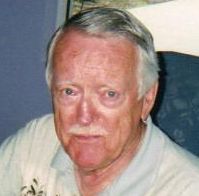
Publisher:
Bonnie King
CONTACT:
Newsroom@Salem-news.com
Advertising:
Adsales@Salem-news.com

~Truth~
~Justice~
~Peace~
TJP
Nov-02-2012 20:29

 TweetFollow @OregonNews
TweetFollow @OregonNews
The Poverty of Relative Deprivation
Bill Annett Salem-News.comGive a man a spade and he'll plant a seed. Give him a horse and plow and he'll plant a crop.
Give him a tractor and he'll drive to the nearest liquor store
- Ancient Peace Corps rubric.
 Courtesy: kitfoster.com |
(DAYTONA BEACH, FL) - Julius Grodinsky was a wise man who was once a prof at The Wharton School in Philadelphia, at whose feet I was first introduced to the early marvel of Texas Instruments, not to mention the alchemy made possible by mixing bourbon and sweet vermouth. He also delivered a universal truth, as valid in 1960 as it is today:
"We all suffer from the poverty of relative deprivation," quoth Professor Grodinsky. It works like this:
In the Great Depression and under FDR, we hankered after a chicken in every pot, at least on Sundays. Post-World War II, our aspirations expanded. Now we all strove for a Ford in every carport. But hark: having attained that milestone, we noted that the guy next door had a Buick, and in an enclosed garage at that.
So it became necessary to move Heaven, earth and the executive ladder to acquire a four port-holer. And at that point, danged if we didn't notice that, across the street, there dwelt a guy with a Cadillac, so that, by mortgaging house, wife and kiddies, we reached that level of distinction, only to realize that, on our windward side, there dwelt a Mercedes-Benz.
And did we then rest, like the Lord Himself after six days? Malheureusement, we were doomed to inferiority and disappointment because we couldn't afford a Rolls-Royce, or at least a Bentley.
The sad lesson is in the feelings of inferiority and the disappointment. With the poverty of relative deprivation, the American tragedy is that affluence leads to insatiable greed, which in turn becomes a compulsive addictive disorder, not satisfaction. A million dollars was once a distinction; now it's the routine goal of a mediocre bond salesman. Is a Madoff content with stealing a billion? Hell, no, the addiction insists that he plunder on.
I once asked Jimmy Pattison, the Vancouver billionaire, why that was so.
"Because," he answered, "in business, that's the only way they keep score."
All of which reminds me for some reason - gee, I wonder why? - of the current state of the Street. And a recent book by Sheila Bair, former chairman of the Federal Deposit Insurance Commission. It's called "Bull By The Horns," and it's a commentary on what might be called a Bair market, or what's wrong - yes, even now - with the Street of Dreams.
The FDIC was created in 1933 to stabilize the banking system after runs by depositors closed hundreds of banks. Sheila Bair has had a varied career, legal counsel for Bob Dole, (prior to his male-enhancement advertising career and a futile run at the Presidency) and later she served as chairperson of the CFTC, headed government relations for the New York Stock Exchange and finally was appointed to run the FDIC, courtesy of George Bush the Younger.
One of her early warnings was noting the risk of sub-prime mortgages and. by implication the unbridled thievery and fraud infecting Wall Street. She opposed the greed imperative writ large that characterized the big banks in much the same way as Grodinsky had predicted the lesser affliction in individuals.
She split with Jamie Dimon of JPMorgan Chase over the issue of restricting executive compensation. She considered Tim Geitner a tool of the big banks. (After his term in office at Treasury in January, no matter who's in the Oval Office, he'll be retiring in order to spend more time with Goldman Sachs.)
Sheila Bair believes megabanks should be downsized, say (according to our Grodinsky analogy) from Bentley to Mercedes status. And she notes that the Dodd-Frank Reform Act, now having been enacted for more than two years, has had little effect, considering JPMorgan's "London Whale" fiasco and attendant losses, the rate-fixing practice of Barclay's, and other frauds, convincingly demonstrating that our financial institutions will not "self-correct" without somebody bending a hickory stick over their score-keeping backsides. It just doesn't happen, cap'n. Free market capitalism notwithstanding. Or notwithsitting.
The Dodd-Frank "rules," hundreds of pages long, tend instead to serve as a competitive barrier that keeps out smaller institutions that can't afford the high-priced legal help to decipher them, while the big-bank lobbyists scoff at the regulators for red-taping the industry.
One of the offshoots from the ever-greater, ever-greedier affliction, the poverty of relative corporate deprivation, is the alarming disparity, the growing inequality in our society. What has always been a fact of life, has now become unconscionable and obscene. Joseph Stiglitz, economist and Nobel Laureate, suggests that its most recent manifestation began with the Reagan administration.
"The Reagan Administration," says Stiglitz recently in a Charlie Rose interview on PBS, "did more than just deregulation. They lowered the taxes on the top. After World War II came decades in which the country grew much faster than it did after 1980. And the country grew together. Every group grew. After 1980, we grew apart. Lowering tax rates on the top increased the divide. And the other one is, we deregulated, particularly in the financial sector, which continued under Clinton, under Bush.
"Deregulation allowed the banks more scope for moving money from the bottom, all those kinds of predatory lending we saw. Move the money from the bottom to the top. And if you look, a disproportionately large number of people at the top, in that 1 percent, are from the financial sector.
"One way of looking at it is, 40 percent of all corporate profits went to the financial sector. So that shows you, in a sense, that a set of institutions that are supposed to be servants don't provide financial services directly. They’re supposed to facilitate. They’re supposed to enable the rest of the economy to do what it’s supposed to do. And yet this servant became the master.
"So if you wanted to encourage investment, I could see an argument saying corporations that invest in America will get tax preferences. Entrepreneurs that expand their investment and create new jobs will get a tax benefit. But it has to be linked to doing things that make our economy stronger, not to gambling, not to speculation, not to just being wealthy."
The deficit obsession, according to Stiglitz, is killing our economy. Over the long run we have to have fiscal responsibility. "That’s why, during the Clinton administration, in good years, we had a surplus. But we opposed a balanced-budget amendment on the grounds that in good times you want to run surpluses. In bad times you want to run deficits. These are bad times."
It may not be likely, but by ridding ourselves of the deficit obsession and concentrating on inequality we might just change things - hopefully delimit the growing subscription to the addiction to keeping score as in a ball game, and returning society to a greater emphasis on other values.
That emphasis might include a return to simplicity. Replacing the upward mobility addiction that inflicts on all of us the poverty of relative deprivation. Because there will always be a new Buick next door. And then a Mercedes across the street.
But the Ford in your future might be a hybrid.

Bill Annett grew up a writing brat; his father, Ross Annett, at a time when Scott Fitzgerald and P.G. Wodehouse were regular contributors, wrote the longest series of short stories in the Saturday Evening Post's history, with the sole exception of the unsinkable Tugboat Annie.
At 18, Bill's first short story was included in the anthology “Canadian Short Stories.” Alarmed, his father enrolled Bill in law school in Manitoba to ensure his going straight. For a time, it worked, although Bill did an arabesque into an English major, followed, logically, by corporation finance, investment banking and business administration at NYU and the Wharton School. He added G.I. education in the Army's CID at Fort Dix, New Jersey during the Korean altercation.
He also contributed to The American Banker and Venture in New York, INC. in Boston, the International Mining Journal in London, Hong Kong Business, Financial Times and Financial Post in Toronto.
Bill has written six books, including a page-turner on mutual funds, a send-up on the securities industry, three corporate histories and a novel, the latter no doubt inspired by his current occupation in Daytona Beach as a law-abiding beach comber.
You can write to Bill Annett at this address: bilko23@gmail.com
Articles for November 1, 2012 | Articles for November 2, 2012 | Articles for November 3, 2012

Salem-News.com:
googlec507860f6901db00.html



Terms of Service | Privacy Policy
All comments and messages are approved by people and self promotional links or unacceptable comments are denied.
[Return to Top]
©2025 Salem-News.com. All opinions expressed in this article are those of the author and do not necessarily reflect those of Salem-News.com.